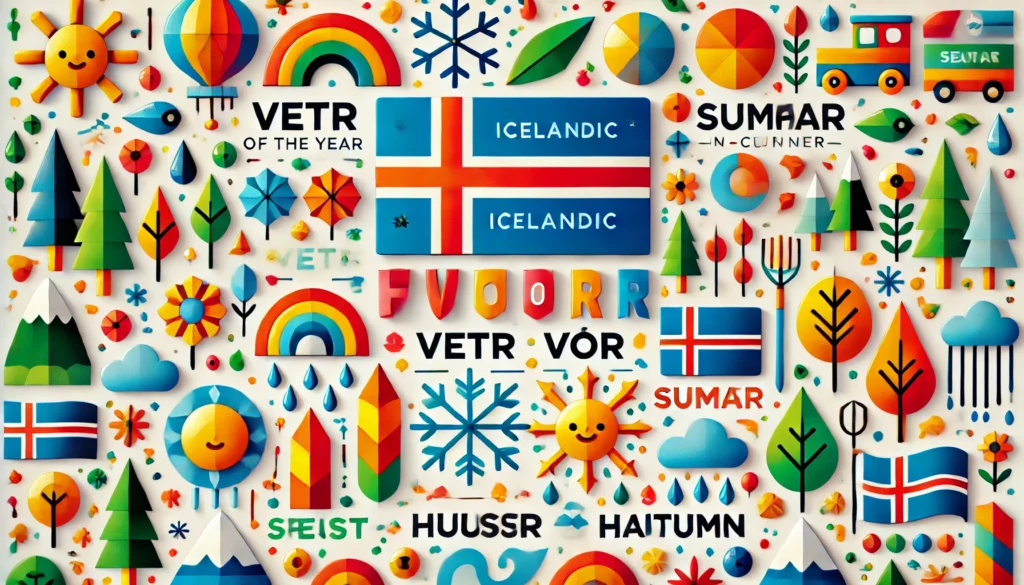Seasons in Icelandic
Learning about seasons in Icelandic is not just about vocabulary; it’s a gateway to understanding Icelandic culture, traditions, and even the local mindset. Mastering this topic is crucial if you want to engage with locals, enjoy Icelandic festivals, or plan a trip to this beautiful country. Let’s explore why learning about seasons in Icelandic is essential and how you can make the learning process both easier and enjoyable.
Why Learn about Seasons in Icelandic?
Understanding the seasons in Icelandic will not only enrich your language skills but also provide insights into the country’s unique climate and lifestyle. Here are a few reasons why learning about seasons in Icelandic is important:
- Cultural Understanding: Knowing the Icelandic seasons helps you comprehend the significance of seasonal celebrations and activities in the country.
- Effective Communication: Being able to discuss the weather and seasons in Icelandic will enhance your interactions with locals and make you feel more integrated into the community.
- Travel Planning: If you plan to visit Iceland, understanding the seasons will help you pack appropriately and make the most of your trip.
How to Learn Seasons in Icelandic
Learning about seasons in Icelandic can be made easier and more enjoyable by following these methods:
- Use Visual Aids: Create flashcards with Icelandic season names and associated images to help you memorize them effectively.
- Practice with Native Speakers: Engage with Icelandic speakers online or in person to practice talking about seasons and receive feedback.
- Immerse Yourself: Watch Icelandic films or listen to Icelandic music that references seasons to familiarize yourself with the language in context.
Examples of Seasons in Icelandic
Here are a few examples of how seasons are referred to in Icelandic:
- Vetur (Winter): Experience the magical Icelandic winter with its snowy landscapes and Northern Lights.
- Vor (Spring): Witness the vibrant awakening of nature as spring arrives in Iceland.
- Sumar (Summer): Enjoy the endless daylight and outdoor adventures that Icelandic summers offer.
- Höst (Autumn): Marvel at the stunning fall colors and cozy up in Icelandic cafes during autumn.
By immersing yourself in the language and culture of Iceland, you’ll not only learn about seasons but also gain a deeper appreciation for the country and its people. So, embrace the beauty of Icelandic seasons and let your language journey be filled with fun and meaningful experiences!

Vor(Spring)

Sumar(Summer)

Haust(Autumn)

Vetur(Winter)

